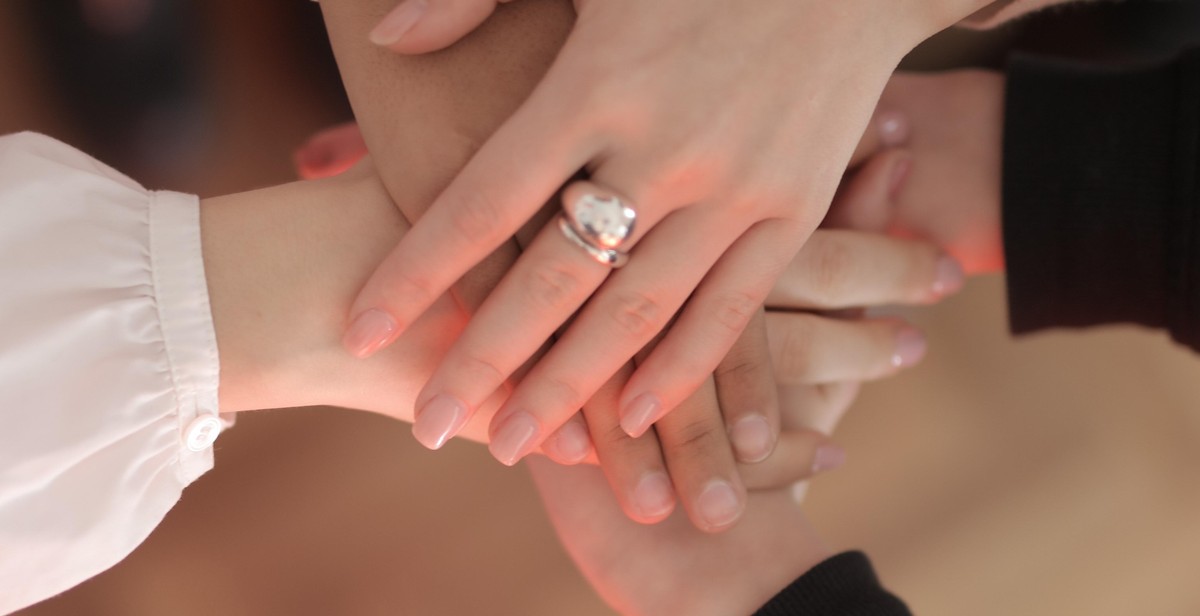Unleashing Love: How to Break Free from a Controlling Partner
Being in a relationship with a controlling partner can be suffocating and emotionally draining. It can leave you feeling trapped, helpless, and unable to make decisions for yourself. As a love and relationships psychology guru, I have seen firsthand the damaging effects of a controlling partner on a person’s mental health and self-esteem.
It’s important to understand that controlling behavior is a form of emotional abuse. It can take many forms, including gaslighting, manipulation, and isolation. If you feel like you are in a controlling relationship, it’s essential to seek help and take steps to break free.
Signs of a Controlling Partner
- Constantly checking up on you
- Dictating what you wear or how you look
- Isolating you from friends and family
- Blaming you for their behavior
- Intimidating or threatening you
- Controlling your finances or access to resources
If any of these behaviors sound familiar, it’s time to take action. In this article, I will share my personal experience and provide practical advice on how to break free from a controlling partner and unleash your love.

Understanding Control in a Relationship
Being in a relationship with a controlling partner can be suffocating and emotionally draining. Control in a relationship is when one partner tries to dominate and manipulate the other partner’s thoughts, feelings, and actions. This type of behavior can leave the other person feeling powerless, anxious, and trapped.
What is a Controlling Relationship?
A controlling relationship is when one partner tries to exert their power and control over the other partner. This can happen in many different ways, such as through emotional manipulation, physical violence, financial control, or sexual coercion. In a controlling relationship, the controlling partner may try to isolate their partner from their friends and family, monitor their every move, and make all the decisions.
It is important to note that control in a relationship is not the same as healthy boundaries or compromise. In a healthy relationship, both partners have equal say and respect each other’s opinions and decisions. Control, on the other hand, is about one partner dominating and manipulating the other.
Signs of a Controlling Partner
It can be difficult to identify a controlling partner, especially if the behavior is subtle or disguised as concern or love. Here are some signs that your partner may be controlling:
- They constantly criticize and belittle you, making you feel worthless.
- They try to isolate you from your friends and family, making you feel dependent on them.
- They monitor your every move, including who you talk to and where you go.
- They make all the decisions in the relationship, without considering your feelings or opinions.
- They use guilt, threats, or manipulation to get their way.
- They are jealous and possessive, accusing you of cheating or flirting with others.
If you are experiencing any of these signs, it is important to seek help and support. A controlling partner can have a serious impact on your mental and emotional well-being, and it is not something that should be ignored.
Conclusion
Understanding control in a relationship is the first step towards breaking free from a controlling partner. By recognizing the signs of a controlling partner, you can take action to protect yourself and seek help and support. Remember, a healthy relationship is built on mutual respect, trust, and communication.

The Impact of a Controlling Partner on Your Life
Being in a relationship with a controlling partner can have a significant impact on your emotional and mental health, social life, career, and finances. It can leave you feeling trapped, helpless, and isolated. Here are some of the ways a controlling partner can affect your life:
Emotional and Mental Health Effects
A controlling partner can make you feel like you are walking on eggshells all the time. They may criticize and belittle you, and make you feel like you are not good enough. This can lead to anxiety, depression, and low self-esteem.
Controlling partners often use emotional manipulation to get their way. They may threaten to leave you or harm themselves if you do not comply with their demands. This can leave you feeling guilty and responsible for their well-being, further damaging your mental health.
Social Isolation
Controlling partners often try to isolate their partners from friends and family. They may discourage you from spending time with loved ones or even forbid you from seeing them altogether. This can leave you feeling alone and unsupported, making it harder to leave the relationship.
Isolation can also make it easier for the controlling partner to maintain their power over you. Without a support system, you may feel like you have nowhere to turn if things go wrong.
Career and Financial Impact
A controlling partner may try to control your career and finances as well. They may discourage you from pursuing your goals or even sabotage your efforts to succeed. This can leave you feeling stuck in a job you hate or struggling to make ends meet.
Controlling partners may also use money as a way to maintain their power over you. They may limit your access to finances, leaving you financially dependent on them. This can make it harder to leave the relationship, as you may not have the resources to support yourself.
| Impact of a Controlling Partner | Effects |
|---|---|
| Emotional and Mental Health | Anxiety, depression, low self-esteem, emotional manipulation, guilt |
| Social Isolation | Feeling alone and unsupported, difficulty leaving the relationship |
| Career and Financial | Limiting access to finances, controlling your career, sabotaging your efforts to succeed |
If you are in a relationship with a controlling partner, it is important to recognize the impact it is having on your life. Seek support from friends, family, or a therapist, and make a plan to leave the relationship if necessary. Remember that you deserve to be treated with respect and kindness, and that you have the power to break free from a controlling partner.

Breaking Free from a Controlling Partner
Being in a relationship with a controlling partner can be a daunting experience. It can make you feel suffocated, trapped, and helpless. But the good news is that you can break free from this toxic situation and regain control of your life. Here are some steps to help you unleash love and break free from a controlling partner:
Recognize and Acknowledge the Control
The first step in breaking free from a controlling partner is to recognize and acknowledge the control. This means identifying the controlling behavior and understanding that it is not healthy. Some common signs of a controlling partner include:
- Constantly checking in on you
- Dictating what you wear, eat, or do
- Isolating you from friends and family
- Blaming you for their behavior
- Threatening you or making you feel guilty
It is important to understand that you are not responsible for your partner’s behavior and that you have the right to be treated with respect and dignity.
Set Boundaries
Once you have recognized and acknowledged the control, the next step is to set boundaries. This means establishing clear limits on what behavior is acceptable and what is not. You can start by communicating your boundaries to your partner and enforcing them consistently. For example, if your partner tries to control what you wear, you can say, “I appreciate your opinion, but I will choose my own clothes.” If your partner continues to push the issue, you may need to take a break or end the relationship.
Seek Support
Breaking free from a controlling partner can be a difficult and emotional process. It is important to seek support from friends, family, or a therapist. Talking to someone who understands what you are going through can help you feel less alone and provide you with the strength and courage to make the necessary changes.
Consider Professional Help
If the controlling behavior is severe or you feel unsafe, consider seeking professional help. This may include talking to a therapist, joining a support group, or reaching out to a domestic violence hotline. Remember that you deserve to be in a healthy and loving relationship.
| Takeaway: | Breaking free from a controlling partner is possible. Recognize and acknowledge the control, set boundaries, seek support, and consider professional help if necessary. Remember that you deserve to be treated with respect and dignity. |

Conclusion
Breaking free from a controlling partner is not an easy task, but it is necessary for one’s emotional and mental wellbeing. It takes courage to recognize the signs of control and manipulation, and even more courage to take action and end the relationship. However, it is important to remember that you are not alone and that there is help available.
Seek Support
Whether it’s from family, friends, or a professional therapist, seeking support can help you through the process of ending a controlling relationship. A therapist can help you identify and address any underlying issues that may have contributed to the relationship, while friends and family can offer emotional support and help you stay on track.
Focus on Self-Care
After leaving a controlling partner, it’s important to focus on self-care. This can include activities such as exercise, meditation, and spending time with loved ones. Self-care can help you rebuild your self-esteem and confidence, and can also help you attract healthier relationships in the future.
Stay Strong
Breaking free from a controlling partner is not a one-time event. It takes strength and determination to stay away from a controlling partner and to continue to prioritize your own wellbeing. Remember to stay strong and to surround yourself with positive and supportive people.
Unleashing love requires both partners to be equal and respectful. If your partner is controlling, it is important to recognize the signs and take action. Remember that you are worthy of love and respect, and that a healthy relationship is one where both partners feel safe, valued, and heard.
